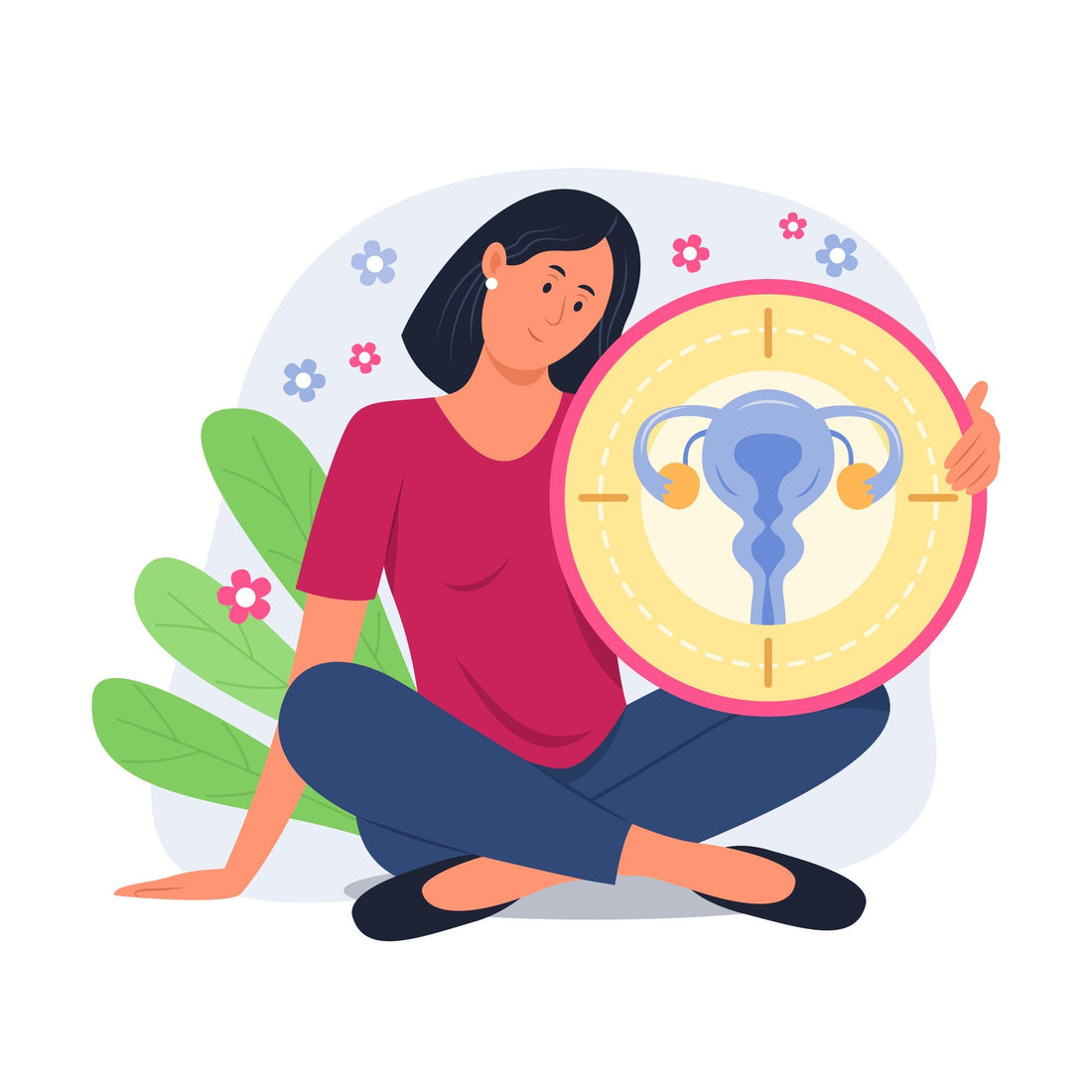
How To Maintain Hormonal Balance And How To Stay Active During Menstruation
Many women face the challenge of keeping a hormonal balance. Hormonal imbalances can cause problems like mood swings and irregular periods. Tips and tricks, including using Kanya Tone Syrup, will guide you to better menstrual health in this blog.
Keep reading for natural ways to feel your best during your cycle.
Tips for Maintaining Hormonal Balance
Bolster hormonal balance through a balanced diet, effective stress management, and regular physical activity. These simple lifestyle adjustments can help regulate hormones for overall well-being.
Incorporate a balanced diet
Eating a balanced diet is key for hormonal balance and menstrual health. Foods rich in whole nutrients can help keep hormones in check. This includes adding avocados and nuts, which are great sources of healthy fats needed for hormone production.
Also, vitamins and minerals such as magnesium and vitamin B6 are vital. They play a big role in managing hormones effectively. Drinking plenty of water supports overall hormone health.
Don't forget foods that support Ayurvedic solutions for menstrual health and natural menstrual relief. Staying hydrated eases PMS symptoms like abdominal cramps and fatigue, helping women feel better during their cycles.
Next, let's explore how to manage stress effectively.
Manage stress effectively
Mindfulness practices, like meditation and yoga, help reduce stress. They are good for hormonal health. Making time for these activities can support emotional well-being during menstruation.
Getting enough sleep is also key to keeping hormones in balance. Sleep helps ease the mind and reduces menstrual discomfort.
Next, let's talk about staying active during your period.
Engage in regular physical activity
Regular physical activity keeps your hormones in balance. It helps with menstrual symptoms and improves your well-being during menstruation. For a natural cycle regulation, mixing exercise with relaxation techniques works best.
This combo supports hormonal health and boosts energy levels for women.
Low-impact exercises like walking or yoga are good choices during periods. They keep you active without too much strain. Following a routine that includes these activities can make hormonal fluctuations easier to manage.
Now, let's look at ways to stay active during menstruation.
Ways to Stay Active During Menstruation
Staying active during your period is an essential part of self-care. It helps alleviate discomfort and promotes overall well-being.
Opt for low-impact exercises
Low-impact exercises help ease menstrual cramps and discomfort. Walking, swimming, and yoga are good choices. They keep you active without being too hard on your body. Doing these activities can also make you feel happier and reduce PMS symptoms.
It's crucial to listen to your body during workouts. This means changing how intense your exercises are if needed.
Adding relaxation methods to your exercise routine makes you feel even better overall. This approach fits well with a holistic Ayurvedic solution for menstrual health, focusing on total wellness and emotional balance during periods.
Next, we'll look at practising yoga and stretching as beneficial ways to stay active while ensuring comfort and promoting digestion support during menstruation.
Practice yoga and stretching
Yoga and stretching contribute significant advantages during menstruation. They alleviate menstrual spasms and discomfort. Participating in yoga releases endorphins that enhance mood and decrease stress.
Certain positions in yoga can also elevate blood circulation and reduce bloating throughout your period. With consistent physical activities such as yoga, hormone balance can be maintained, thus lessening symptoms of PMS.
Including gentle stretching and yoga in your daily regimen fortifies overall well-being during your menstrual cycle. These activities give relief from fatigue and encourage emotional steadiness through mindfulness and relaxation.
The practice of yoga serves as a vital component of comprehensive menstrual care that is in harmony with Ayurveda for women's health, assisting energy levels and productivity during periods, circumventing the requirement for chemical-free syrup or other treatments.
Additional Self-Care Practices
Enhance your well-being with rest and hydration to support your hormonal balance. Ease discomfort through heat therapy, promoting relaxation and comfort during menstruation.
Prioritise adequate rest and hydration
Getting enough sleep is key to keeping your hormones in check during menstruation. It helps regulate the hormones that change during this time, providing fatigue relief and supporting emotional well-being.
Aim for 7-9 hours of sleep each night to help your body recover and maintain a hormonal balance.
Drinking plenty of water is also essential for women's health, especially during periods. It can lessen menstrual symptoms like bloating and aid in overall bodily functions. Hydration plays a crucial role in holistic menstrual care, offering an energy boost for women experiencing menstrual fatigue. Adequate rest and staying hydrated are foundational practices for managing hormonal balance effectively.
Use heat therapy for discomfort
Heat therapy helps with menstrual cramps and hormonal changes. It makes blood flow better, relaxes muscles, and lessens pain. You can use heating pads, hot water bottles, or warm baths for this. Doing heat therapy regularly can make you more comfortable and improve your mood during your period.
Adding mild exercises to heat therapy keeps up energy levels and lowers discomfort. This mix supports women's health by keeping hormones balanced. Heat therapy is safe for long-term use and fits well with Ayurvedic women’s wellness practices.It helps maintain emotional well-being alongside other self-care habits.
Conclusion
In maintaining hormonal balance, a balanced diet, regular physical activity, and effective stress management are essential. Herbal supplements like Kanya Tone can also support female health.
During menstruation, staying active through low-impact exercises like yoga and walking can help reduce discomfort. Adequate rest, hydration, and nutritious diet play a vital role in supporting energy levels during this time.
It's crucial to prioritise self-care practices for overall well-being during menstruation.

